- World Population Review Newsletter
- Posts
- Can a Chatbot Help You Heal? Some Say Yes
Can a Chatbot Help You Heal? Some Say Yes
Inside the global shift to digital therapy, from apps to AI chatbots.
In partnership with
Greetings, seeker of smart solutions!
What if therapy no longer meant waiting rooms or white coats—but quick chats from your kitchen, your commute, or your couch? For millions around the globe, that’s already reality.
This edition uncovers the nations driving a quiet mental health revolution—where care moves from clinics to code, from stigma to screen. Who’s leading? Who’s lagging? And what does it mean for your world?
Let’s dive in.
Keto, Paleo, Vegan, Mediterranean… Why Does None of It Work for You?
There is no one-size-fits-all when it comes to health. Gene Food Insider gives you the tools to personalize your approach—with nutrition, supplements, and lifestyle tips grounded in science.
1. 🇫🇮 Finland Leads with Digital Dignity
In Finland, therapy doesn’t mean a long wait or a cold office—it’s often just a login away. The country offers online cognitive behavioral therapy (CBT) through public health channels, making it accessible, private, and free to most users.
🇸🇪 Sweden and 🇳🇴 Norway are also embracing digital counseling, supported by platforms like Mindler and Kry, which let you schedule therapist appointments with just a few taps.
This isn’t just tech—it’s a cultural commitment to making mental care easy to reach, without shame.
💡 Did you know? Over 70% of Finnish young adults now say they prefer online therapy over face-to-face sessions—an early sign that the future of care may be screen-first.
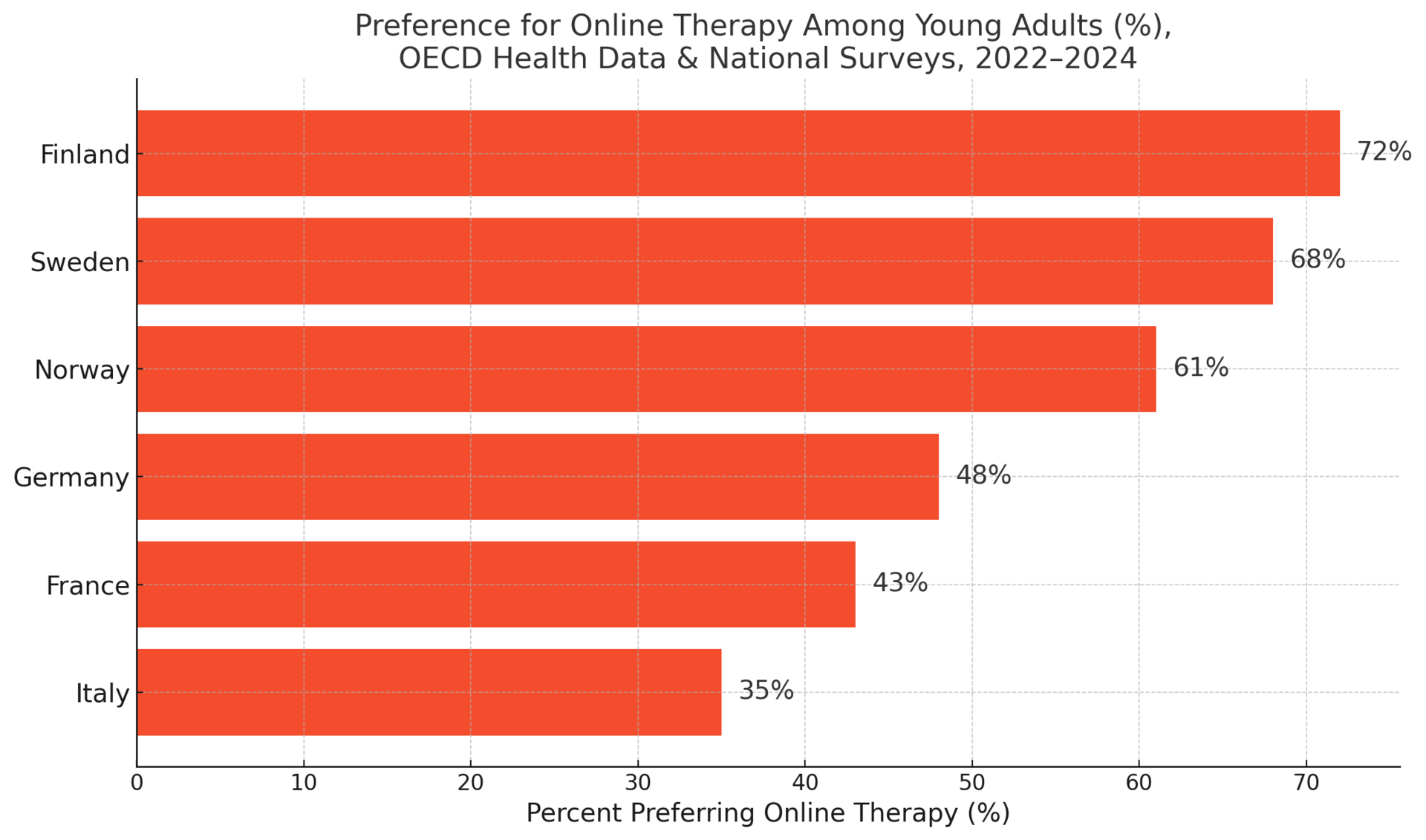
2. 🇺🇸 The U.S.: Mental Health at a Monthly Fee
In the U.S., digital mental health is booming—but not equally. Services like BetterHelp and Talkspace make therapy feel as familiar as a streaming subscription. And during the pandemic, teletherapy became more mainstream than ever.
But there’s a gap: access often depends on where you live, how much you earn, or whether your insurance covers mental health. While Silicon Valley innovates, many Americans still struggle to find affordable, ongoing support.
📈 Eye-opener: The U.S. digital mental health market is on track to hit $30 billion by 2030—but nearly 4 in 10 adults with mental illness still go untreated.
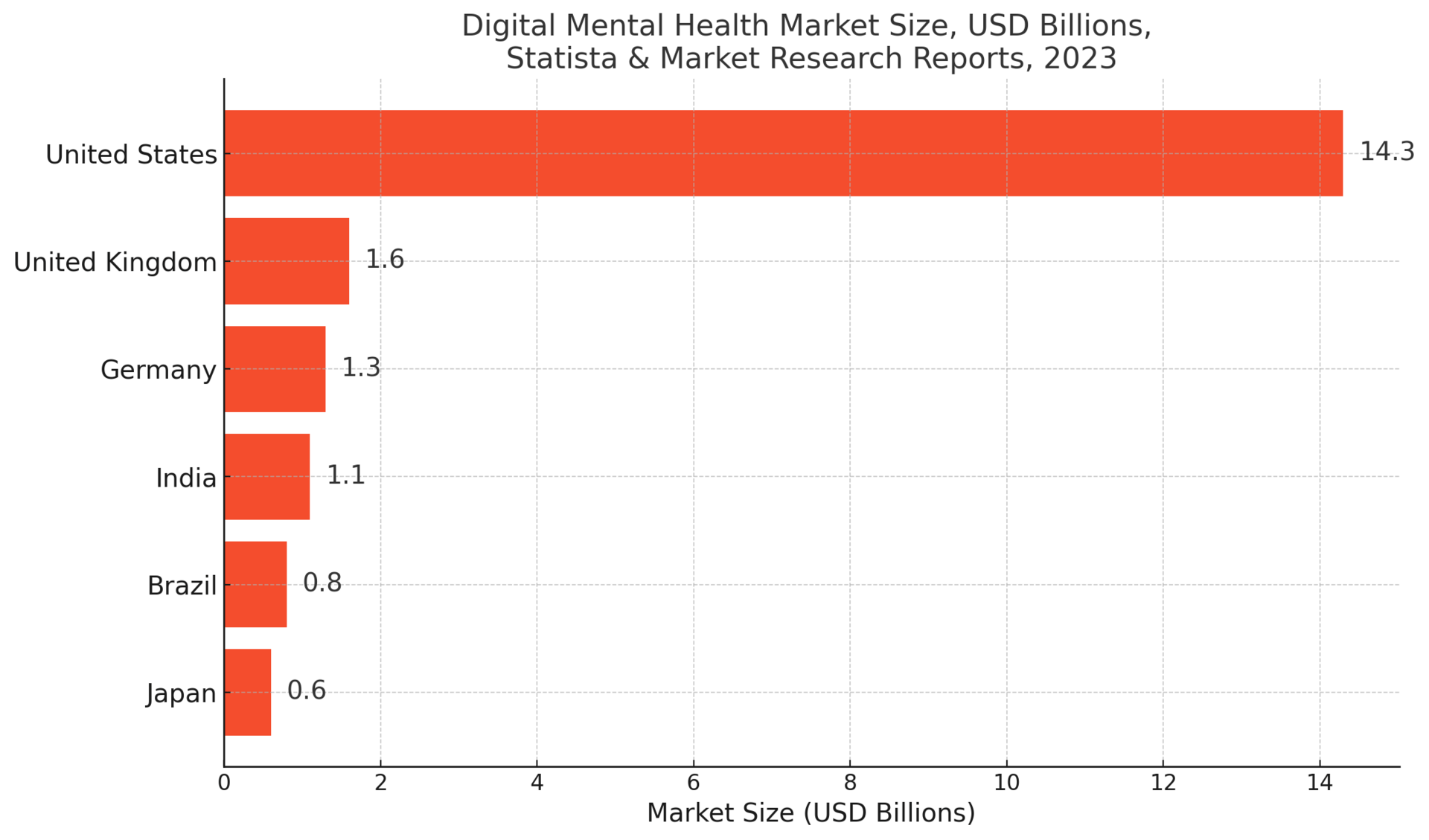
3. 🇮🇳 India’s Digital Revolution in Mental Health
For decades, mental health was whispered about in India—if it was discussed at all. Now? AI-powered apps like Wysa and counseling platforms like YourDOST are helping people manage anxiety and depression with their thumbs.
With over 60% of therapists based in just five cities, rural and underserved regions have turned to mobile-first care out of necessity. The bonus? These tools are often culturally tailored, anonymous, and even multilingual.
📱 Big shift: Wysa, born in India, now serves 5+ million users in 65 countries—proof that innovations built for one population can echo far beyond.
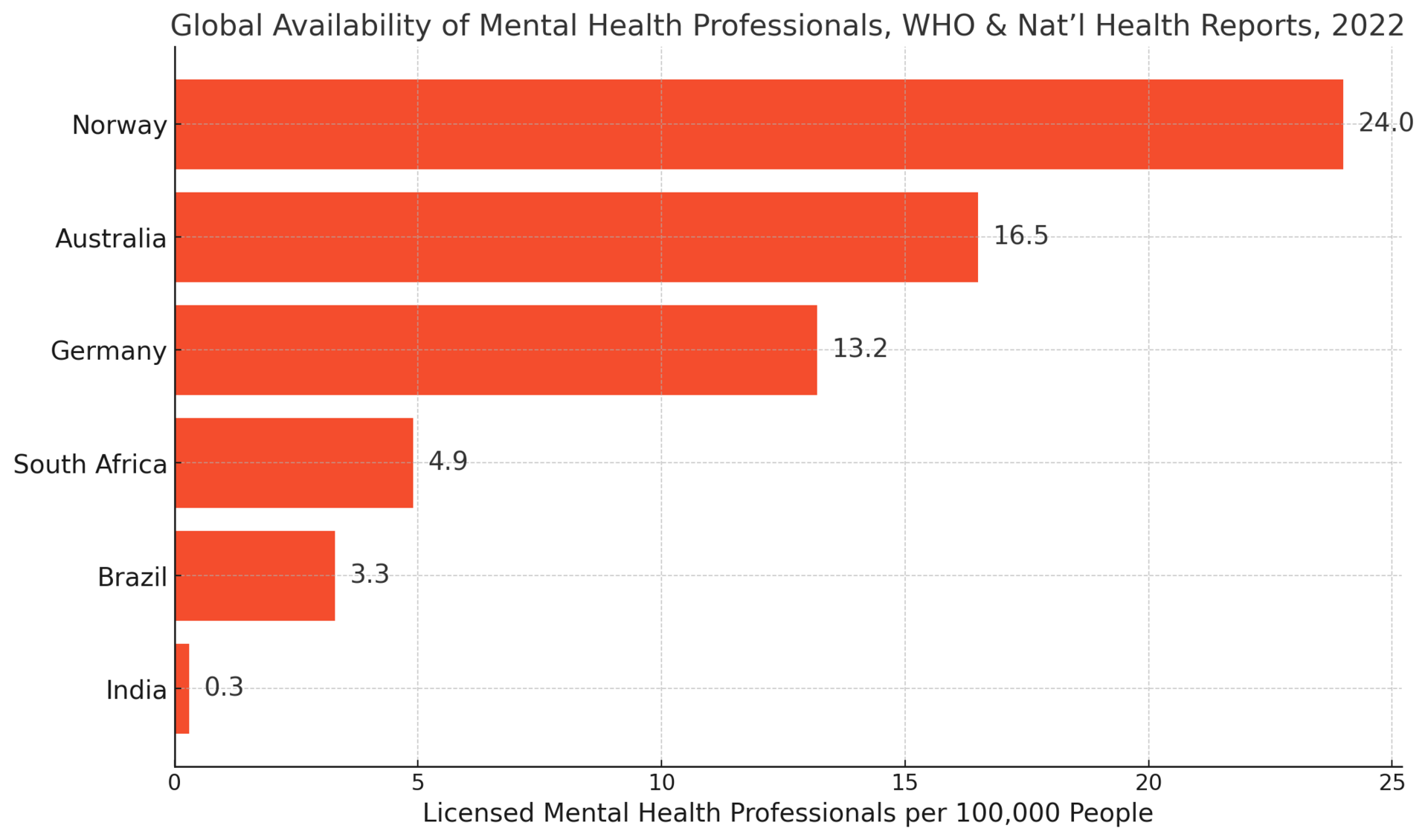
🧬 Still following one-size-fits-all nutrition advice?
Your genes might say otherwise. Gene Food Insider helps you understand why that diet isn’t working—and what to do instead. Get science-backed insights on food, supplements, and health—personalized to your DNA.
4. 🇯🇵🇰🇷 Japan & South Korea: High Tech, Higher Silence
Both Japan and South Korea have the digital tools to revolutionize mental health—but stigma often keeps people from reaching out. In 🇰🇷 South Korea, suicide remains a leading cause of death among young adults. And in 🇯🇵 Japan, emotional struggles are often hidden behind cultural norms of endurance.
Still, small steps are emerging: Korea’s government-funded Mindlink app helps youth check in with themselves. Japan is piloting AI tools that analyze voice tones for emotional stress—used more in business than therapy for now.
🤖 Quiet paradox: Only 6% of Japanese adults with depression seek help—but Japan leads the world in commercial use of emotion-detecting AI.
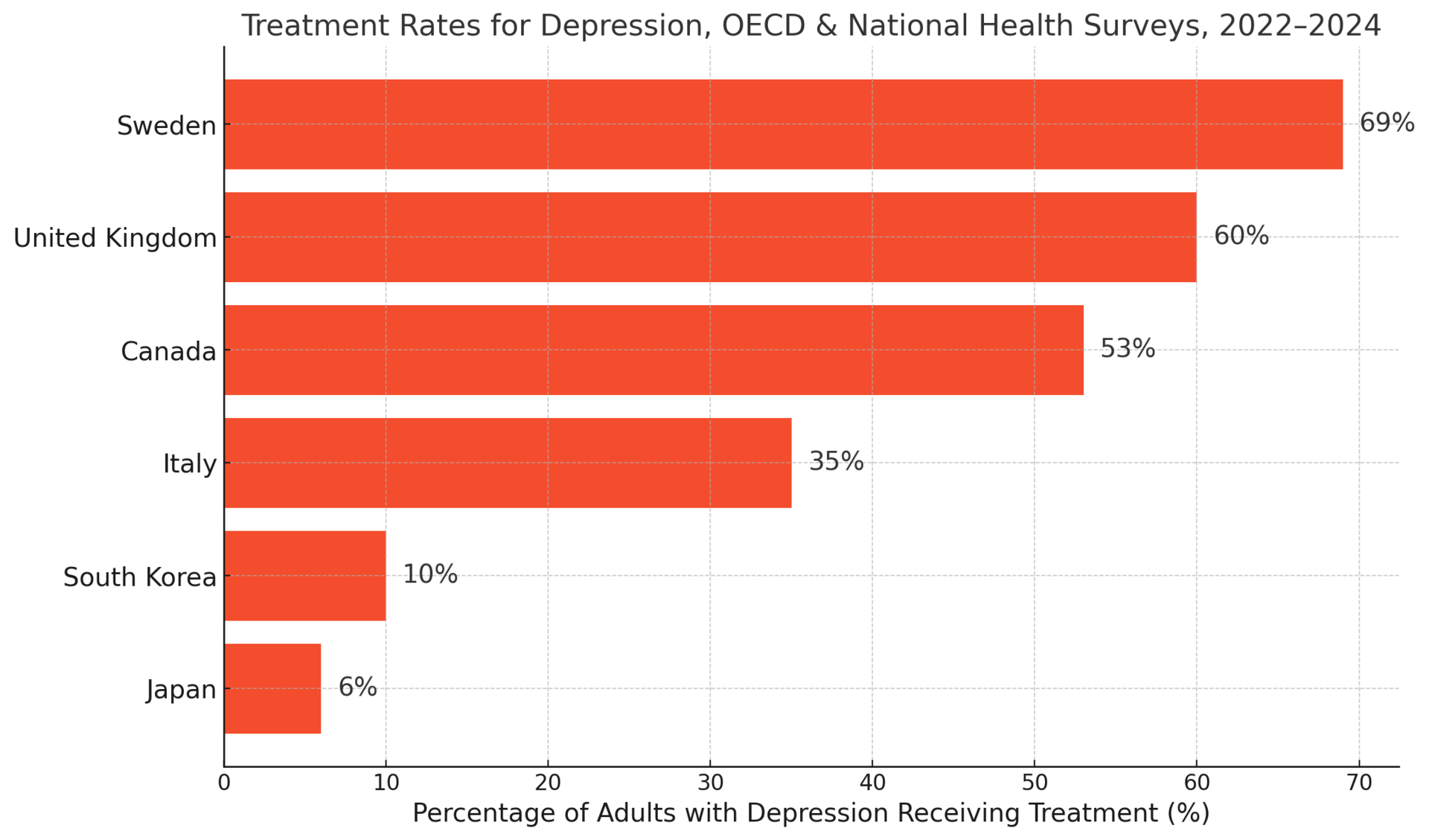
5. 🌍 Africa: Connection as a Lifeline
In countries like 🇰🇪 Kenya and 🇳🇬 Nigeria, mobile mental health isn’t a convenience—it’s a lifeline. With very few trained psychologists, communities are turning to WhatsApp check-ins, SMS counseling, and locally run apps like MindIT.
These platforms often blend clinical advice with community support, and they work even without a data plan—crucial in places where internet access isn’t guaranteed.
📳 Against the odds: In Ghana, mental health app use doubled between 2020 and 2023—even though smartphone access is below 50%. The reason? Deep community trust.
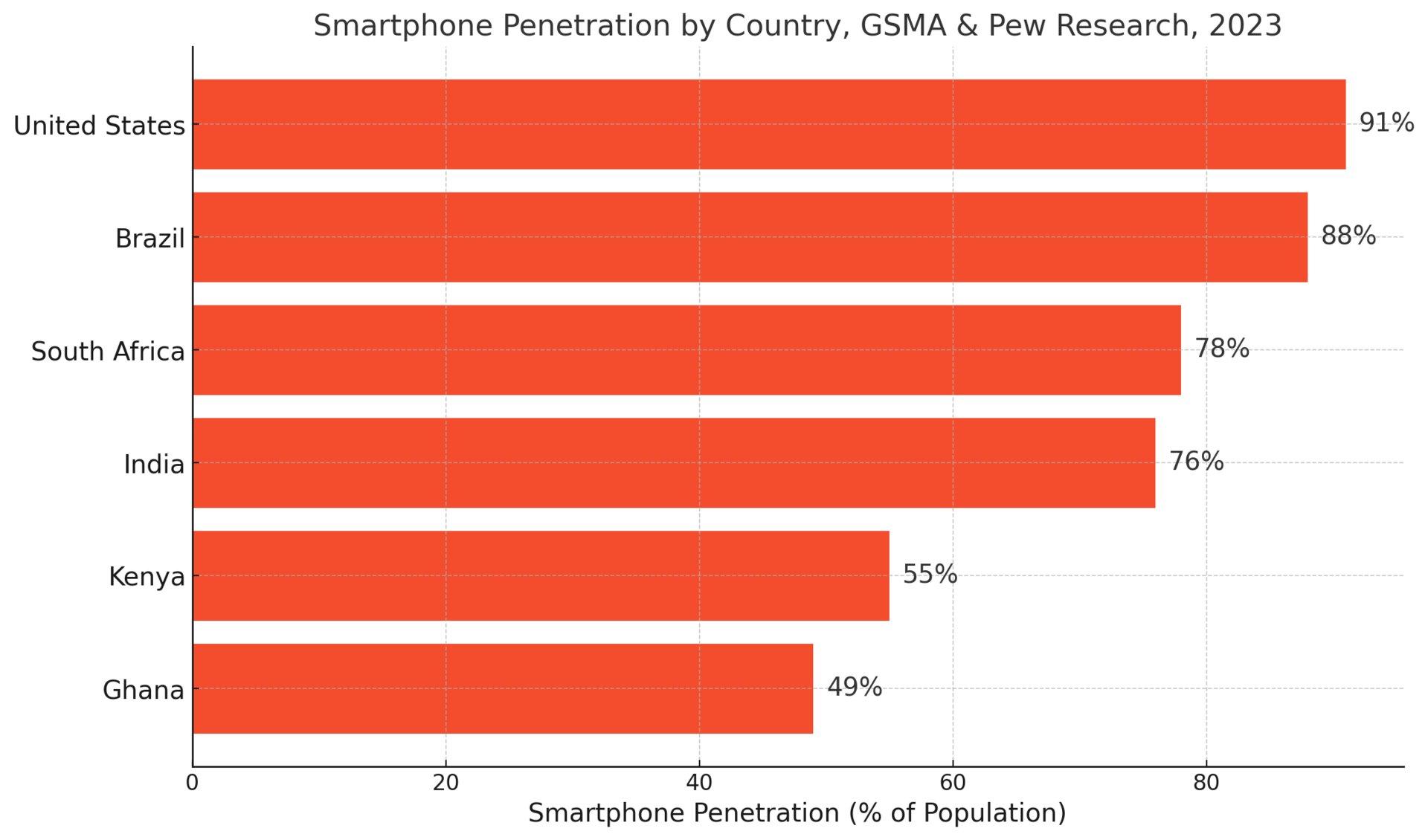
6. 🇩🇪 Germany & Europe: Privacy Meets Progress
Across Europe, innovation often comes with a healthy dose of caution. Thanks to strict privacy laws like GDPR, mental health apps face rigorous review—especially in 🇩🇪 Germany, where approved apps (called DiGA) must pass clinical testing before being doctor-prescribed.
🇫🇷 France is experimenting with school-based mindfulness programs, and 🇪🇸 Spain is rolling out digital wellness tools regionally. The tech is there, but policy and cultural norms often create a slow lane for change.
🛡️ Little-known fact: Germany now has 130+ government-approved health apps—but they must prove medical benefit before hitting public insurance.
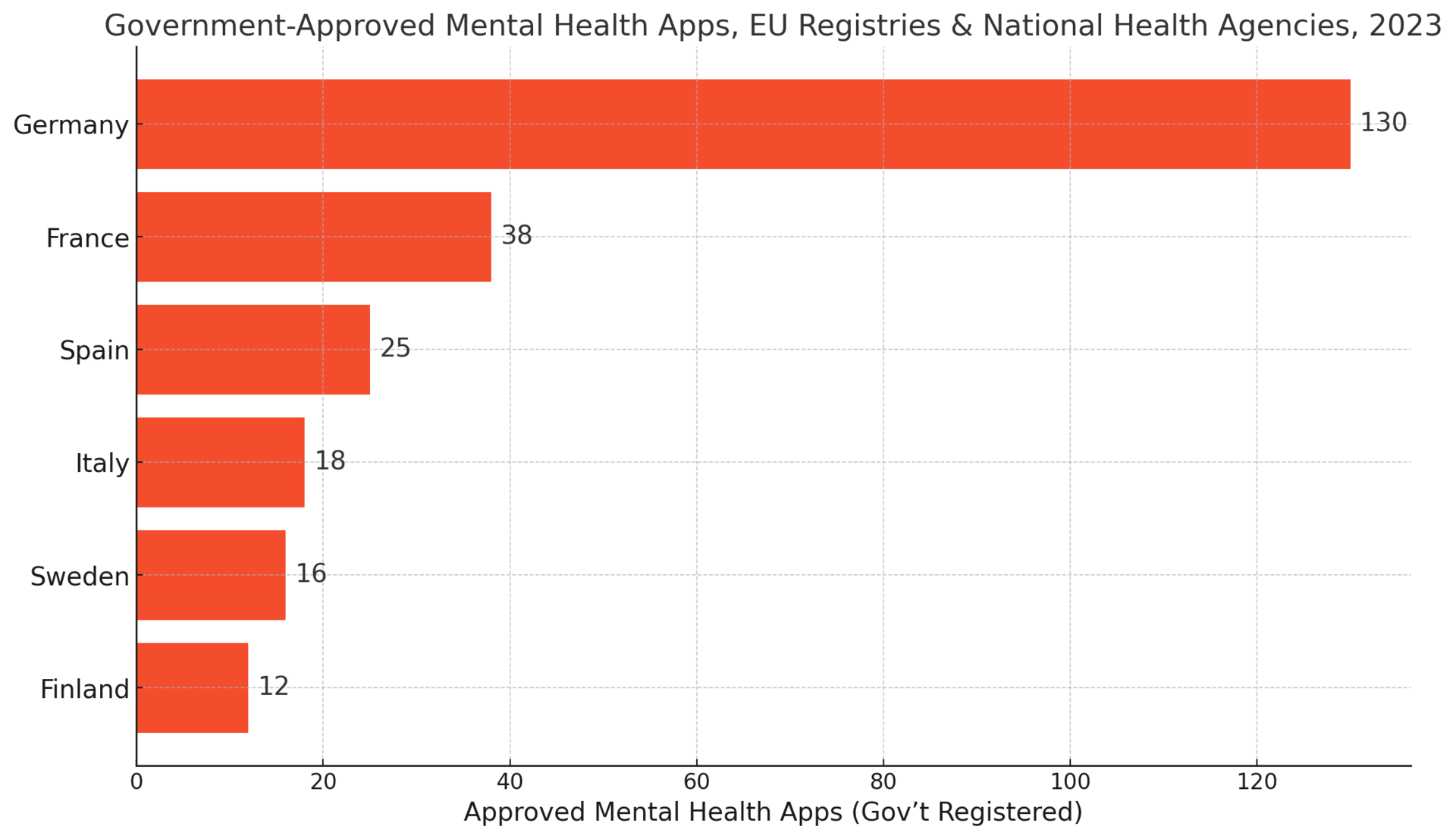
7. 🤖 The AI Therapist: Friend or Faux?
Could a chatbot help you through a panic attack? Millions already think so. Tools like Woebot (CBT-focused) and Replika (conversation-based companionship) are stepping in where access is scarce—or where talking to a human feels too hard.
They don’t diagnose. They’re not a replacement for a therapist. But for mild distress or day-to-day mental hygiene, these bots can be surprisingly helpful.
🧠 Surprising study: In blind trials, users rated AI therapists as equally empathetic as human ones—as long as they didn’t know they were talking to a bot.
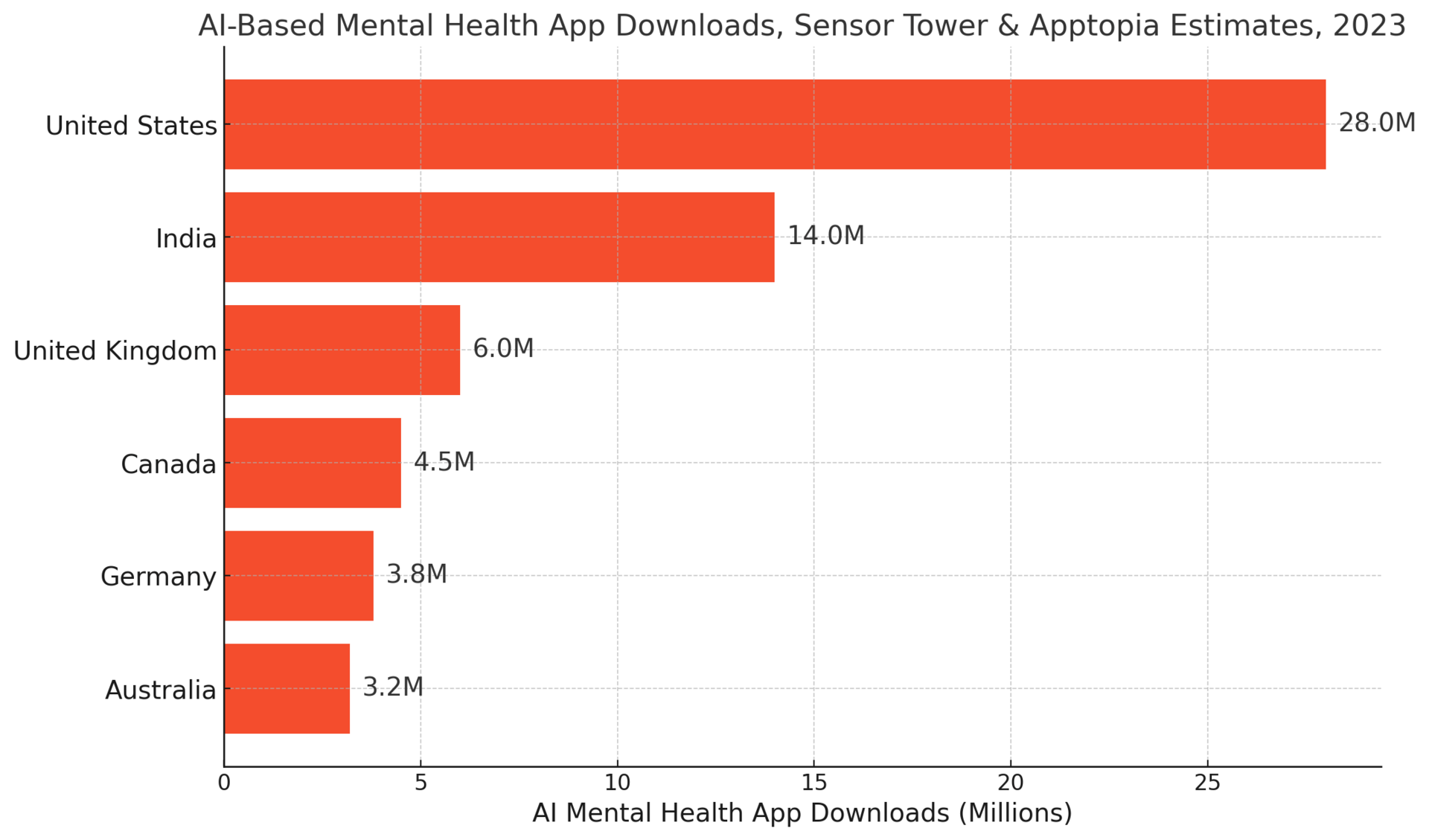
From Nairobi to New York, therapy is no longer where you go—it’s what meets you where you are.
Across the world, digital tools are breaking down barriers to mental health care. What once felt out of reach is now just a tap away.
Whether you're investing, relocating, or simply seeking peace of mind—this shift matters. The screen in your hand may be the most powerful health tool of the decade.
And this global story? It's just beginning.
Warm regards,
Shane Fulmer
Founder, WorldPopulationReview.com
P.S. Want to sponsor this newsletter? Reach 123,000+ global-minded readers — click here!

